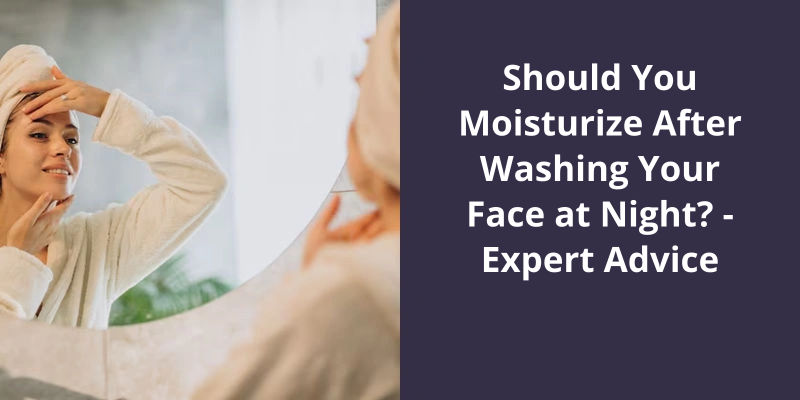Room sprays have become an increasingly popular household item in recent years. These sprays are often used as a quick and effortless way to freshen up a room and eliminate any unwanted odors. While using these sprays may seem harmless, there are actually several potential side effects to be aware of. The chemicals found in many air-freshening sprays, such as acetone, ethanol, and acetate, can lead to a variety of health issues with prolonged exposure. These include nausea, headaches, impaired lung function, irritation of the eyes, nose, and throat, and even damage to the nervous system, liver, and kidneys. It’s important to be aware of these potential side effects and take appropriate measures to minimize exposure when using room sprays in your home.

Is It Bad to Inhale Room Spray?
Inhaling room spray regularly or in large amounts can be extremely dangerous and can cause various respiratory problems. Some room sprays contain harmful chemicals such as benzene, formaldehyde, and phthalates, which can cause long-term health problems. These chemicals can cause irritation and damage to the lungs, throat, and nose. They can also lead to the development of asthma and other respiratory issues.
Some ingredients in air fresheners can cause headaches, dizziness, and nausea. Prolonged exposure to these chemicals can lead to anxiety and depression. In some cases, inhalation of air fresheners can lead to loss of consciousness, seizures, and even death.
Children have weaker immune systems and smaller airways, making them more susceptible to the harmful effects of air fresheners. Pets, on the other hand, have a more sensitive sense of smell and can experience discomfort and irritation from inhaling room spray.
It’s crucial to use these products cautiously and in a well-ventilated area. Instead, consider using natural alternatives such as essential oils or DIY air fresheners. If you experience any symptoms of respiratory distress or have concerns about exposure to harmful chemicals, seek medical assistance immediately.
How to Identify and Avoid Potentially Harmful Air Fresheners and Room Sprays
- Look for natural and organic options.
- Avoid air fresheners with “fragrance” or “parfum” on the label.
- Check the ingredient list for phthalates, VOCs, and synthetic musks.
- Avoid using air fresheners in poorly ventilated or small spaces.
- Consider using essential oils or natural herbs for scenting your home.
- Avoid using air fresheners around children and pets.
- Look for air fresheners with certifications such as Green Seal or EPA Safer Choice.
- Consider using an air purifier instead of air fresheners.
- Read reviews and do research before purchasing air fresheners.
It’s important to be mindful of where you’re spraying air fresheners, as they’re meant for use in the air rather than on your body. In the event that you accidentally spray room spray on yourself, there are some potential negative effects to be aware of.
What Happens if You Spray Room Spray on Yourself?
Inhaling room spray isn’t recommended, as it can cause respiratory irritation and discomfort. The chemicals in air fresheners can also trigger asthmatic symptoms in sensitive individuals. Some sprays contain volatile organic compounds (VOCs), which can contribute to indoor air pollution and pose health risks over long-term exposure.
If sprayed directly into the eyes, room spray can cause significant irritation and discomfort. The chemicals in the spray can damage the delicate tissues of the eye, causing redness, swelling, tearing, and sensitivity to light. If this happens, it’s important to flush the eyes with plenty of clean, cool water to minimize the damage.
Ingesting room spray is incredibly dangerous and should never be done intentionally. The chemicals in air fresheners can be toxic if ingested, causing nausea, vomiting, headaches, and other symptoms. In severe cases, ingestion can lead to chemical burns in the mouth and throat, respiratory failure, and even death.
Finally, it’s important to handle room spray with care and avoid exposing it to heat or flame, as some sprays contain flammable ingredients. Keep air fresheners out of reach of children and away from pets, and always read the labels and instructions before use. If you experience any adverse reactions to room spray, seek medical attention immediately.
The Environmental Impact of Using Room Spray and Other Air Freshening Products
The use of air freshening products, such as room sprays, can have negative impacts on the environment. The chemicals contained in these products can contribute to air pollution and harm both the atmosphere and wildlife. Therefore, it’s important to consider using natural and eco-friendly alternatives to reduce the environmental impact.
Conclusion
The presence of volatile organic compounds (VOCs) in these products can lead to a range of unpleasant symptoms that range from nausea and headaches, to respiratory and neurological damage. As such, it’s recommended to limit the use of air-freshening sprays and to instead opt for natural alternatives, such as essential oils or ventilation, to maintain a fresh and healthy environment in our homes and workplaces. By taking proactive steps towards reducing our exposure to harmful chemicals present in room sprays, we can protect our health and promote a more sustainable and eco-friendly lifestyle.





